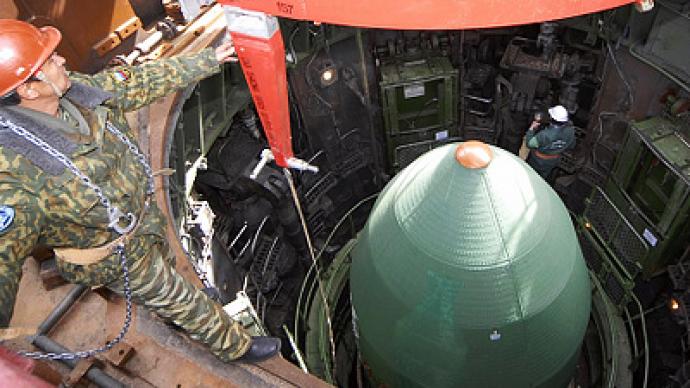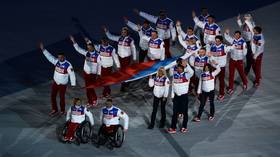Russian Parliament enters final stage of New START ratification

Russia's lower house of Parliament, the State Duma, is to consider the ratification of the Russia-US New Strategic Arms Reduction Treaty in its third and last reading.
The nuclear arms cuts have been already approved by the American side.The previous review of the bill has seen an amendment introduced by the Russian Duma in response to the American interpretation of the text.Russian legislators stressed Moscow could withdraw from the deal if it felt threatened by US missile defense plans in Europe.However, the text of the START was not amended by either US Senators or Russian deputies.Still, after the Senate suggested its own interpretation of the treaty, Russian State Duma has had to follow the same pattern and propose some interpretations of certain parts of the treaty, the head of the State Duma Foreign Affairs Committee, Konstantin Kosachev, told RT.The Russian State Duma has amended not the treaty but the ratification law, with the amendments passed to the US.These amendments, binding to the Russian side only, contain explanations of how the Russian side interprets the text of the treaty. For example the American side states that the treaty has nothing to do with anti-missile defense, whereas Russia believes the interrelation between offensive and defensive weapons is in the treaty to avoid distortion of the treaty in the future and ensure the viability of the agreement.“We try to follow the logic and the text and the spirit of the treaty itself,” Kosachev said, finishing that a bilateral consultative commission will be entitled to determine whether the newly developed types of weapons will fall under the START treaty or not.
The Republican part of the Senate was against the treaty out of strong enmity towards the Obama administration, not to the treaty itself, believes Viktor Mizin, a political analyst from Moscow State University.“For us and for the US it is very important that now we have a meaningful legal document which keeps our nuclear arsenals [equal].”
The New START agreement was signed by Presidents Medvedev and Obama in April last year and will slash the countries' nuclear arsenals by a third.














